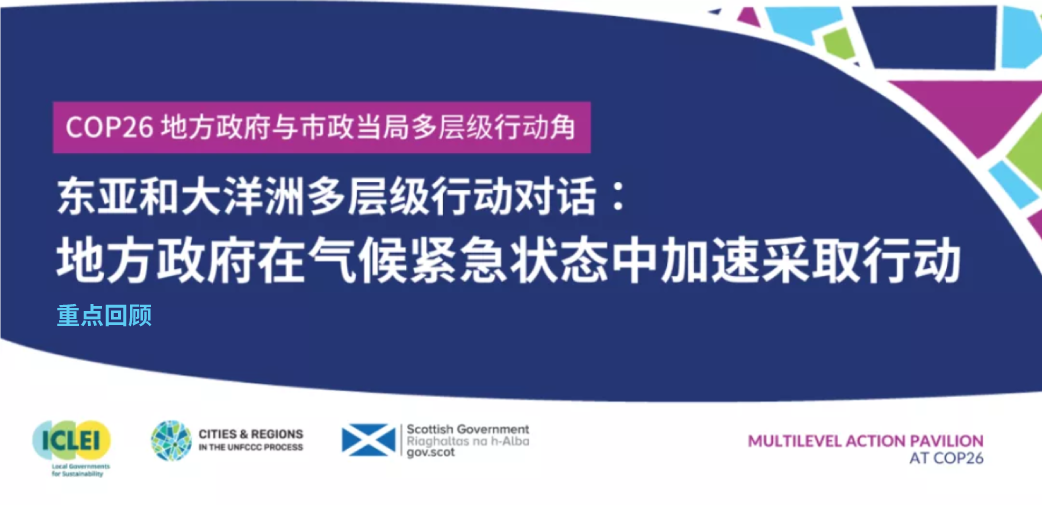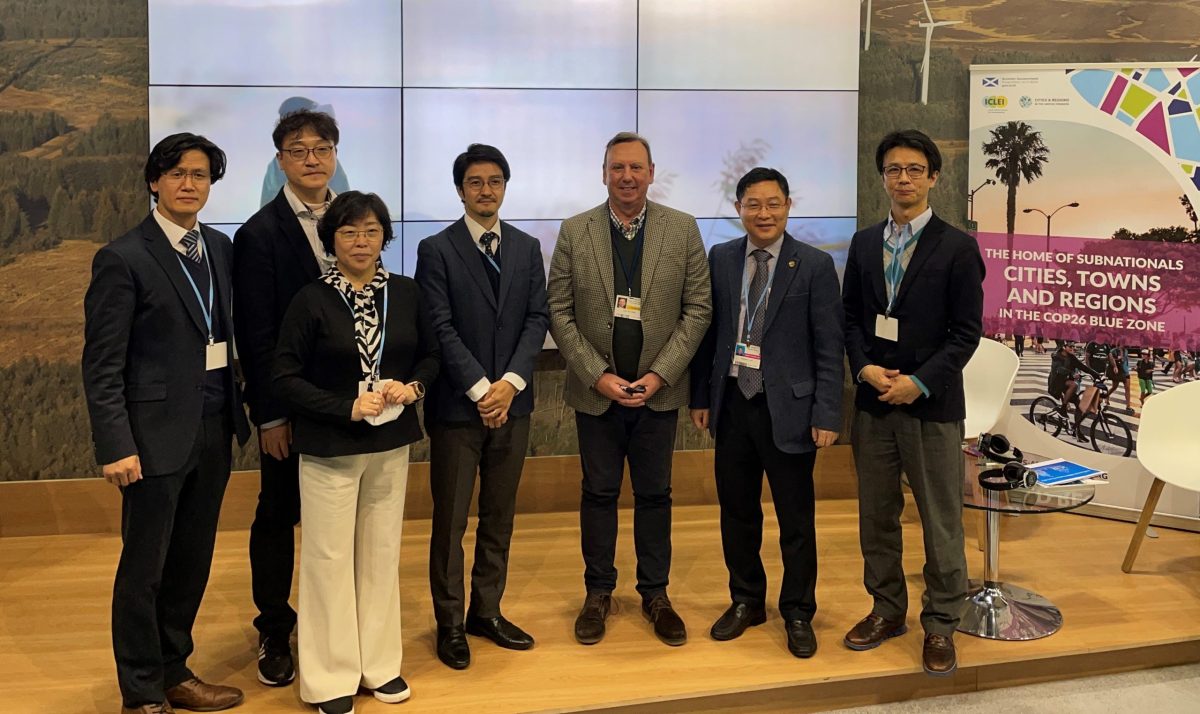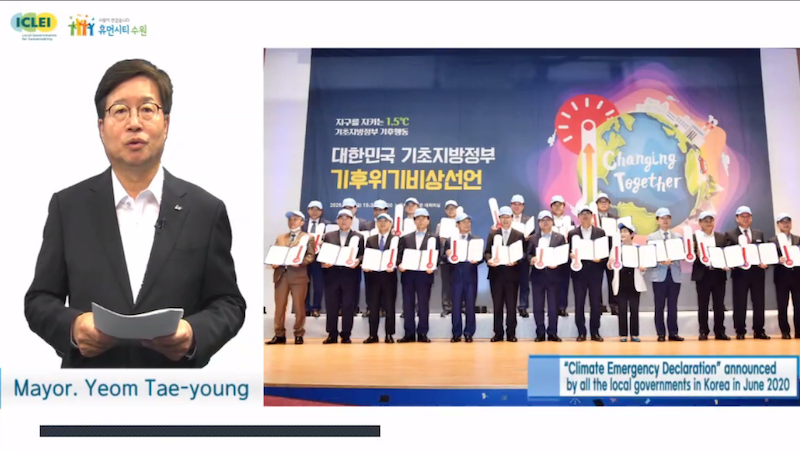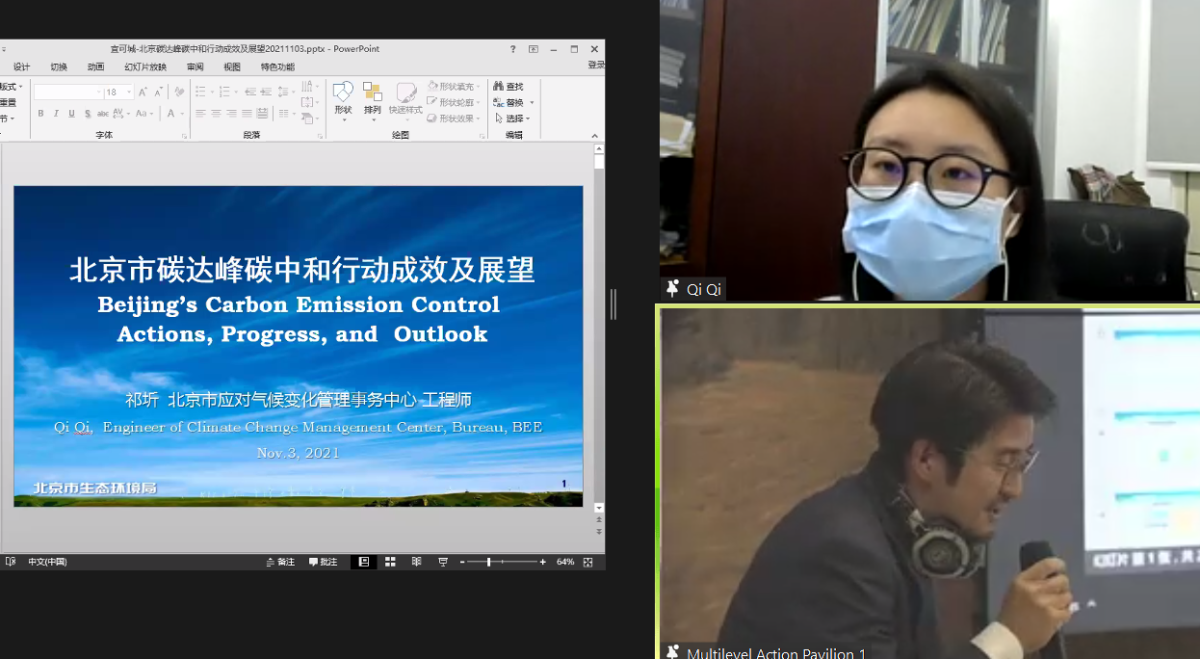COP26 Recap: local governments driving accelerated action in the climate emergency in East Asia and Oceania

At a historic first, the Paris Agreement recognized the importance of multilateral governance. Building on the understanding that cities, towns, and regions are essential actors for meeting national climate goals, the next phase of global efforts must center around multilevel collaboration for accelerated action. It was significant that more than 60 countries from both Global North and Global South had presented more ambitious Nationally Determined Contributions (NDCs) ahead of COP26, signifying the momentum towards multilevel collaboration.
At the subnational level, ICLEI-Local Governments for Sustainability (ICLEI) works directly with its members and project cities to support the countries’ NDCs and their commitment to achieving climate neutrality through the GreenClimateCities (GCC) Program and ICLEI’s Climate Neutrality Framework.
At COP26, ICLEI and the Scottish Government jointly organized the Multilevel Action Pavillion as a sharing and cooperation platform for local governments. On 3 November, ICLEI’s East Asia Secretariat, Japan Office, Korea Office, and Oceania Secretariat co-organized a dialogue session, inviting representatives from 6 local governments in the East Asia and Oceania region to exchange their climate ambition and efforts.

East Asia and Oceania Time4MultiLevelAction Dialogue took place at the Blue Zone of COP26
Local leaders expressed their determination to tackle climate change. Teayoung Yeom, Mayor of Suwon City and President of the Korean Local Governments’ Action Alliance for Carbon-Neutrality, shared Suwon’s recently revised 2030 target, climate strategies, and collaboration with the Korean national government on the Green New Deal. Horoshisha Fuji, Mayor of Toyama, reflected on the climate change impact on the city and introduced the public transportation renovation program and the Toyama City Energy Vision.
“I hope the local governments, as well as global networks in Korea and other parts of the world, can join together in their effort to pursue actions to combat climate emergencies. As we move forward, Suwon will continue to collaborate with other local governments and with ICLEI as (a) global leading net-zero city.”
Teayoung YEOM, Mayor of Suwon City

Opening remarks delivered by Mayor Yeom of Suwon City
“As a mayor, my role has been central to leading the vision of a zero-carbon future by presenting it to the citizens. Toyama City is committed to actively implementing these measures toward carbon neutrality.”
Horoshisha FUJI, Mayor of Toyama City
Experts from Beijing (China), Jeollanam-do (Korea), Yokohama (Japan), and Yarra (Australia) shared their climate actions. Qi Qi, Engineer of the Beijing Climate Change Management Center, shared the Chinese capital’s progress on carbon reduction since 2006, and the key paths toward achieving carbon neutrality by 2060. Kwangsun Jung, Director of Climate and Ecology Division of Jeollanam-do Provincial Government, presented their civil engagement actions, and the challenges they have encountered regarding cooperation, technical innovation, climate finance, and public engagement.

Presentation on Beijing’s climate action
Kazuaki Takahashi, Executive Director for Planning and Coordination Development under Climate Change Policy Headquarters of Yokohama, introduced the city’s climate cooperation with other local governments, the Japanese national government, and international organizations including ICLEI. Amanda Stone, City Councilor of Yarra in Australia, presented local governments’ climate commitment and actions to urge the national government to take stronger climate action.
Through the session, the 6 local governments were able to showcase their climate efforts and learn from peer provinces and/or cities, while promoting multilevel climate action towards decarbonization at COP26. The Glasgow Climate Pact, a key COP26 output, explicitly called out the role of local and regional governments in advancing and implementing climate goals.
“Recognizing the important role of indigenous peoples, local communities and civil society, including youth and children, in addressing and responding to climate change, and highlighting the urgent need for multilevel and cooperative action.”
Preamble, Glasgow Climate Pact
Following the closing of COP26, countries around the world will also need to readjust their action and response in the age of climate emergency. As a global network, ICLEI will continue to work closely with local and regional governments around the world, seeking to achieve carbon and climate neutrality through concrete multilevel climate actions. Through assisting local governments in developing GHG inventories and long-term strategies for low-carbon development, as well as facilitating international climate cooperation between cities, the ICLEI East Asia Secretariat and other ICLEI offices in the region will keep on supporting local governments in East Asia in moving towards a carbon-neutral and climate-safe future.

